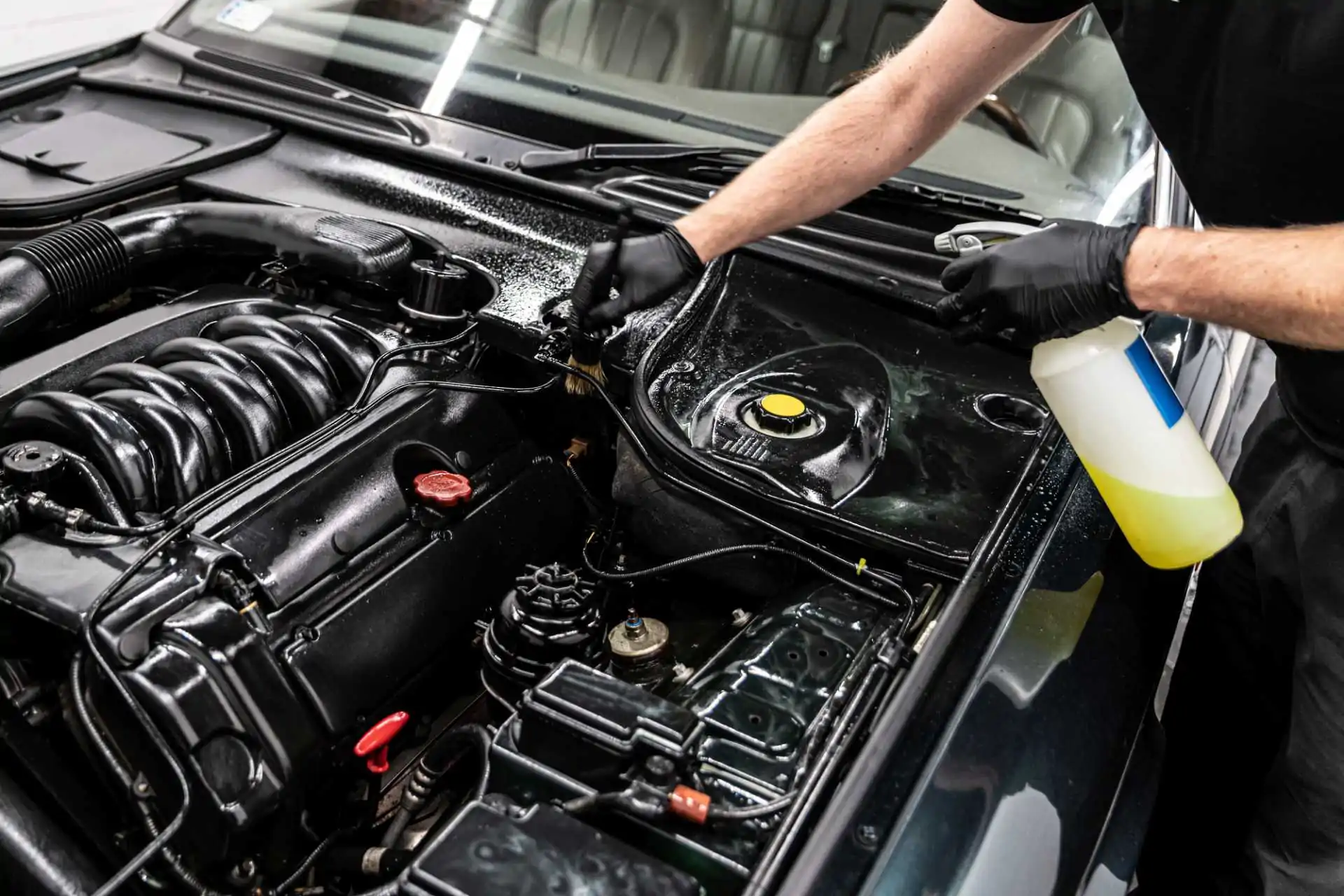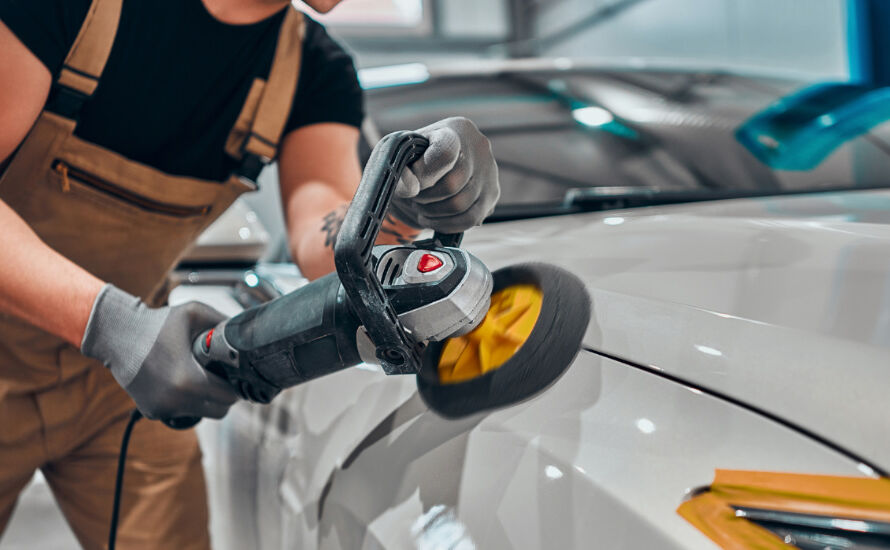Engine Detailing Safety Tips
Cleaning your car’s engine bay makes it look professional, helps with maintenance, and improves resale value. But engine detailing requires caution. Modern engines contain sensitive electronics, sensors, and wiring that can be damaged if cleaned improperly.
Detailing experts report that improper engine cleaning is one of the top causes of sensor failures after DIY washes. By following key safety tips, you can safely restore your engine bay without risk.
Why Safety Matters in Engine Detailing
- Electrical Risks: High-pressure water and harsh cleaners can short circuits or corrode wiring.
- Component Sensitivity: Alternators, fuse boxes, and sensors can be easily damaged.
- Fire Hazards: Flammable cleaners used incorrectly pose fire risks.
- Warranty Concerns: Some manufacturers warn against aggressive engine cleaning.
Safety Tips for Engine Detailing
1. Cool the Engine First
Always allow the engine to cool before cleaning to avoid burns and protect sensitive parts.
2. Cover Vulnerable Components
Use plastic bags or foil to cover alternators, air intakes, fuse boxes, and batteries.
3. Use Low-Pressure Water
Avoid power washers. Instead, use a gentle mist or damp microfiber towels.
4. Choose the Right Cleaner
Only use automotive-safe, water-based degreasers. Household chemicals can damage rubber and plastics.
5. Work in Sections
Detail one area at a time to prevent oversaturation and spotting.
6. Agitate Gently
Use soft detailing brushes — never wire or abrasive brushes.
7. Dry Thoroughly
Use microfiber towels and compressed air to remove moisture.
8. Apply Protective Dressings
Condition rubber hoses and plastic parts with non-greasy protectants to prevent cracking.
9. Disconnect the Battery (Optional)
For extra safety, disconnect the negative terminal before deep cleaning.
10. Test Before Driving
Once finished, check all electrical components (lights, sensors, ignition) before driving.
Final Thoughts
By following these safety tips for engine detailing, you protect your car’s sensitive components while keeping the bay clean and professional-looking. With the right precautions, you’ll enjoy a spotless engine without risking costly damage.
Frequently Asked Questions (FAQ)
Is it safe to wash my car’s engine?
Yes, if you use low-pressure water, proper cleaners, and protect electrical components.
Should I disconnect the battery before cleaning?
It’s not required but recommended for extra safety.
Can I use a pressure washer on the engine bay?
No. High-pressure water can damage sensors and wiring.
What parts of the engine should I cover?
Alternator, fuse box, air intake, and exposed wiring.
What’s the safest cleaner for engines?
A water-based automotive degreaser. Avoid harsh chemicals.
How often should I detail my engine bay?
Every 6–12 months, or more often in dusty conditions.
Will cleaning my engine improve performance?
No, but it helps detect leaks and wear earlier.
Can I use household cleaners for the engine?
No. They may corrode rubber and plastic parts.
How long does engine detailing take?
Usually 30–60 minutes depending on dirt level.
Does engine detailing increase resale value?
Yes. A clean engine bay improves buyer confidence and appeal.




